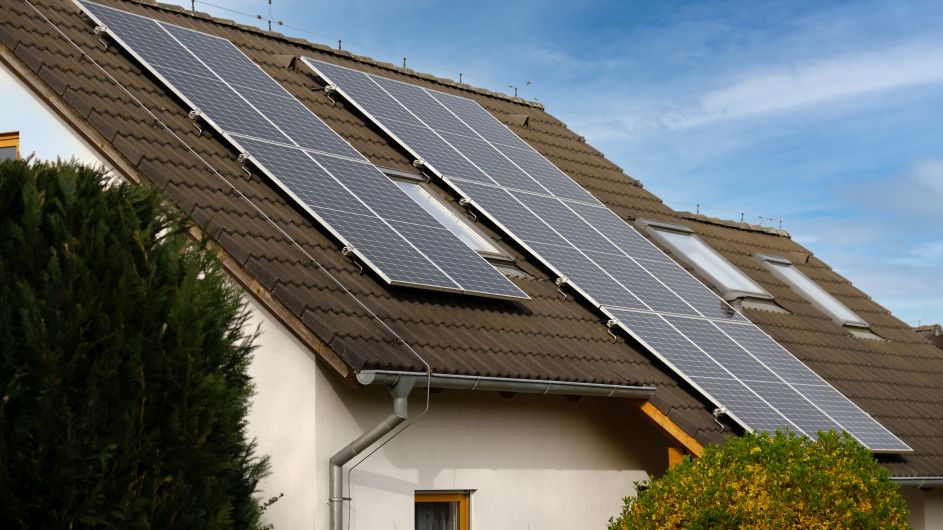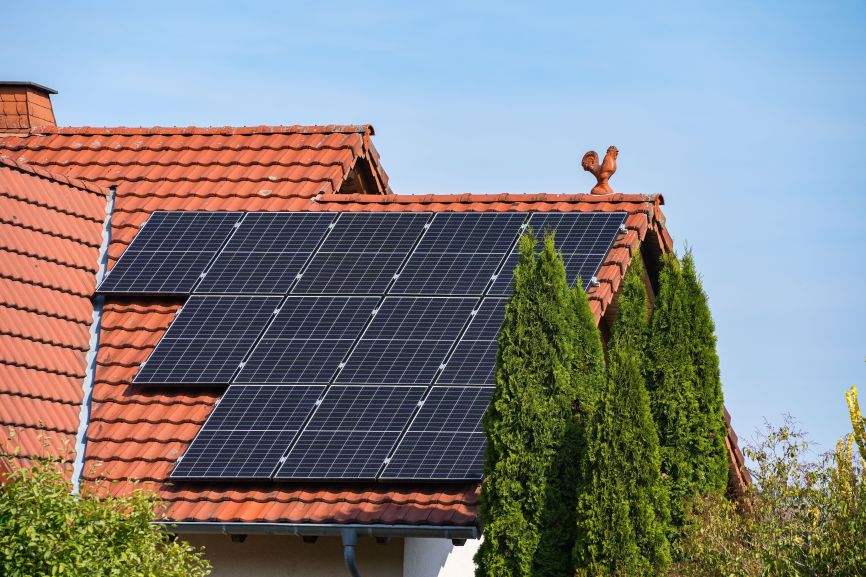If you’re a Massachusetts homeowner or business owner thinking about switching to solar, you’ve probably wondered: Can my roof actually handle the weight of solar panels? It’s a valid concern -no one wants to invest in clean energy only to discover their roof wasn’t ready for it. At EcoSunWorks, we help local property owners understand not just the power of solar, but also the practical side – including weight, roof strength, and long-term safety.
Let’s break down exactly how heavy solar panels are, what affects their weight, and what that means for your roof.

How Much Do Solar Panels Weigh on Average?
Most residential solar panels weigh between 40 and 50 pounds each, depending on the manufacturer and model.
- 300-watt panels: around 39 pounds
- 400-watt panels: about 50–52 pounds
- 500-watt panels: can reach 60 pounds or more, especially for commercial applications
On average, you can expect a solar system to add about 2–4 pounds per square foot of roof space – well within the capacity of most modern roofs.
Fun fact: Flexible or thin-film solar panels weigh far less -sometimes under 10 pounds each – but they’re less efficient than traditional silicon-based models.
Residential vs. Commercial Panel Weight
| Type | Typical Weight Range | Average Size | Notes |
| Residential Panels | 40–50 lbs | 65 x 39 in | Ideal for homes, easy to handle during installation |
| Commercial Panels | 44–60 lbs | 78 x 39 in or larger | Heavier and larger, built for maximum energy output |
Commercial solar panels tend to weigh more because they use more cells and glass surface area, designed for larger-scale systems.
What Affects the Weight of Solar Panels?
Several key factors influence how heavy a solar panel is:
- Panel Size & Wattage – Higher wattage = larger panel = more weight.
- Frame Material – Aluminum frames are lighter, while steel adds durability but increases weight.
- Glass Thickness – Tempered glass protects the cells but adds a few extra pounds.
- Cell Type – Thin-film and flexible panels weigh less than monocrystalline or polycrystalline ones.
- Mounting System – Rails, brackets, and hardware can add 3–5 pounds per square foot to the total system load.
Can Your Roof Handle the Weight of Solar Panels?
In most cases – yes. A standard roof can easily support a professionally installed solar array.
Here’s what you (and your installer) should check:
- Roof Material & Condition: Asphalt shingle, metal, and tile roofs can all handle solar panels, but older roofs may need reinforcement.
- Roof Age: If your roof is 15+ years old, consider replacing or reinforcing before installation.
- Professional Structural Assessment: Before any installation, EcoSunWorks conducts a roof load and structural analysis to ensure safety and compliance with local building codes.
“We’ve installed panels on hundreds of homes across Massachusetts -from vintage colonials to new builds – and rarely find a roof that can’t handle solar with the right preparation.” – EcoSunWorks Installation Team

How to Calculate Total Solar System Weight
Here’s a simple breakdown example:
| Example System | Panel Count | Panel Weight | Total System Weight (Panels Only) |
| 5 kW system | 12 panels | 45 lbs each | 540 lbs total |
| 10 kW system | 24 panels | 50 lbs each | 1,200 lbs total |
Now, add about 200–300 lbs for mounting rails, wiring, and hardware.
That might sound heavy, but spread across your roof area, it’s just 2–4 lbs per square foot – similar to a layer of shingles or snow after a Massachusetts winter storm.
Does Panel Weight Affect Efficiency or Installation?
Not directly – weight doesn’t influence performance, but it does impact logistics. Heavier panels may need:
- Two-person lifts for safety
- Stronger mounting hardware
- Careful spacing to distribute weight evenly
EcoSunWorks’ licensed installers handle all these details, ensuring your system is both safe and optimized for maximum sunlight exposure.
Lightweight Alternatives
If you’re concerned about roof load, consider these options:
- Flexible panels: great for RVs, sheds, or lightweight roofs.
- Ground-mounted systems: ideal if you have open land space and want to avoid roof load entirely.
- Carport solar: generates power and adds shade or parking coverage.
Key Takeaway
Solar panels aren’t as heavy as most people think – and a properly installed system is perfectly safe for nearly any roof.
If you’re unsure whether your roof is ready for solar, let EcoSunWorks handle the evaluation. Our experts will inspect your roof, run a structural analysis, and design a system that’s efficient, durable, and built to last. Call today to get a free quote!
